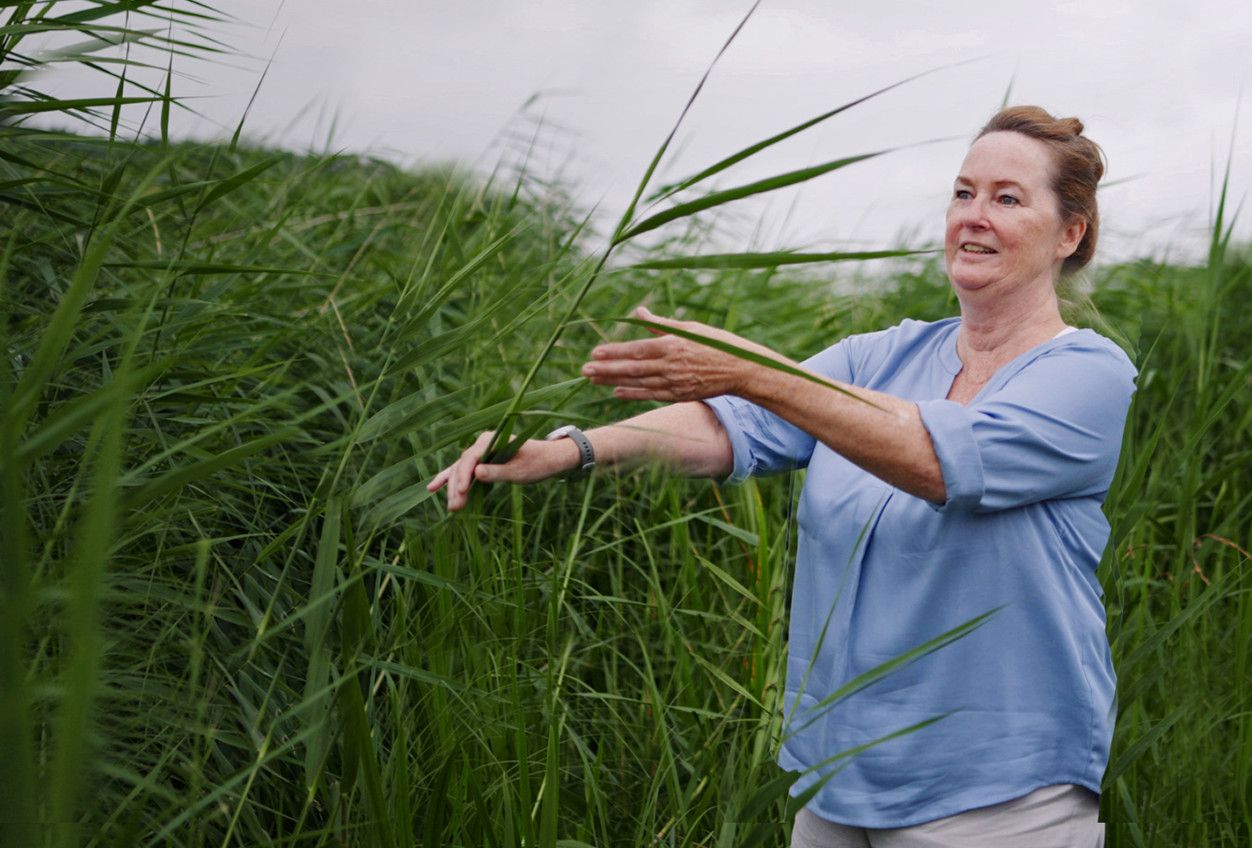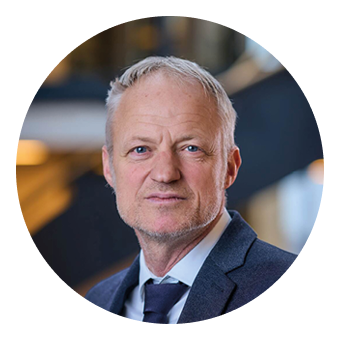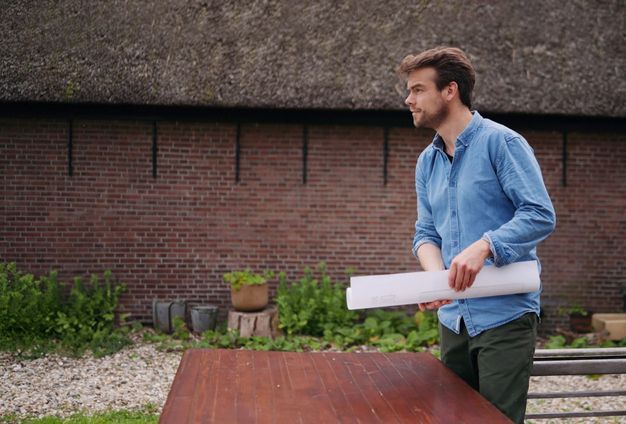
Logo of the 2025 National Delta Programme
Towards a new balance in the living environment: room to live with water
The Delta Programme reports annually on new insights and progress. The highlights from the 2025 Delta Programme are set out below.
Intense rainfall, problems with excessive water and dry spells in recent years are providing us with a picture of the new climate. The leap to a safe and liveable future begins now.
The Netherlands must take a different approach to water shortages and surpluses, including the use of space
In the Delta Programme, we are preparing for the new climate. The current focus is still on water management solutions. They remain important but they are not enough.
Additional efforts in water management will allow us to cope with climate change to some extent. But certainly not entirely.
The solution is also to be found in how we organise our surroundings and use the land.
With this combination, we will keep the Netherlands safe and liveable: we have to change our approach to water and land use.

Three agendas

scroll
Agenda 1 Flood risk management is about flood protection
Floods from the sea, the large lakes and the large rivers
Overarching goal
By 2050, everyone will have the base level of protection. The likelihood of large groups of victims and major economic damage will therefore be very low.

0%
80%
100%
More dike upgrades
More dike upgrades will be needed until 2050. The pace has to pick up.
Higher costs
The dike upgrades required will cost more money than previously estimated.
Setting space aside
It is necessary to set more space aside for future dike upgrades.
Agenda 2 The freshwater agenda is about resilience to water shortages
Coping with too little and too salty water
Overarching goal
The Netherlands will be resilient to water shortages by 2050.

0%
100%
Even more frequent water shortages
The shortfall in freshwater increases dramatically in the summer.
Be prepared
Increasingly, there is not enough fresh water for everyone. All sectors must be prepared for regular water shortages and more salinisation.
Maintain the pace
The pace of implementation is slowing. We have to keep moving.
Agenda 3 Spatial adaptation is about climate-resilient spatial planning
Resilience to damage caused by problems with excessive water, drought, heat and the effects of flooding
Overarching goal
The Netherlands will be climate-resilient by 2050.

0%
100%
Substantive goals
There will be concrete goals for making spatial planning climate-resilient.
Everyone in action
Climate-resilient spatial planning requires action from everyone: the financial sector, telecommunications, energy, corporations, local residents etc.
Safeguards
A range of studies have shown that making the Netherlands climate-resilient is going to cost tens of billions.

We want The Free Meuse to be a good ancestor for our children and grandchildren.
Watch video (2 minutes)
Implementation in the areas
The Delta Programme is ultimately shaped by its implementation in the regions. The water agendas there are becoming increasingly interwoven with agendas for areas such as housing construction, agriculture and nature. That is true for the entire country. Problems with excessive water, water shortages and flood protection can no longer be solved in the water domain alone. It is becoming increasingly important for spatial planning and land use to fit in with what the water and soil system can handle. What is needed for sustainable water-robust planning?

Four recommendations from the Delta Commissioner
Co Verdaas

1 Think bigger and look ahead: break the deadlock

Investment plans are still failing to take more extreme weather into consideration enough. Prioritise a perspective for future-resilient agricultural land use that also contributes to the water and soil agendas. Target sectoral financial resources in a coordinated way.
2 Give water room

Make room to store surplus precipitation and retain water for drier summers. The Delta Programme can show for each region where there are vulnerabilities to water shortages and surpluses. On that basis, possible adaptations to spatial planning and land use can be identified, as can the remaining risks for water users.
3 Provide clarity for areas with earmarked zones

A number of areas have been set aside for water storage in extreme circumstances. For these areas and any new areas that are set aside, make it clear what can and cannot be done, temporarily or permanently.
4 Invest in financial stability and training

In all regions, increasing water challenges are leading to more work. Invest in operational capacity. Make agreements about nominal increases in the budgets of the Delta Fund. And make arrangements with education and employers to train enough professionals in good time.
The Delta Fund
The Delta Fund contains the financing provided by the national government to pay for some of the measures in the Delta Programme in the years ahead. Other government authorities contribute as well. The Delta Commissioner does not believe this is enough for the necessary dike upgrades and other measures. This is mainly because more dike upgrades are required than previously thought.

Periodical evaluation
Once every six years, we review the approach of the Delta Programme. We improve the strategy for flood risk management, fresh water and spatial adaptation with the latest scientific insights. We also show where administrative decisions are required.
Conclusion
The Delta Programme shows that climate change is causing more and more bottlenecks. We need to strengthen more dikes and dunes, and we have more frequent problems with excessive water and water shortages. We can limit the risks for people and maintain the appeal of the Netherlands as a business location by changing our approach to water and with spatial planning and land use.



